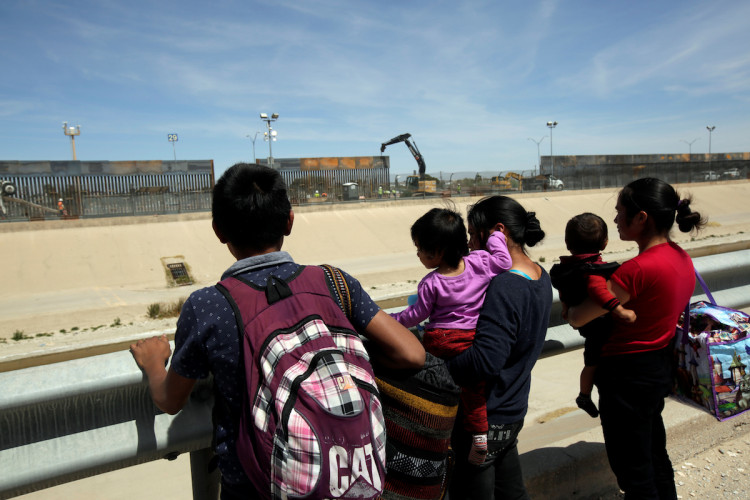As dawn breaks at the base of Otay Mountain, the oppressive heat already engulfs the landscape. Even in the early morning, temperatures near this 3,500-foot peak soar into triple digits, a harbinger of the deadly conditions awaiting migrants attempting to cross the U.S.-Mexico border. This part of California is under an excessive heat warning, exacerbating the perils for those making the treacherous journey.
Into this harsh environment venture volunteers from Borderlands Relief Collective, a San Diego-based group dedicated to delivering water and first aid to migrants. Almost immediately upon beginning their ascent, they encounter Taleb, a man from Mauritania, sitting despondently by the roadside. Dehydrated and wearing ill-fitting shoes, Taleb breaks into tears at the sight of the volunteers bearing water. His plight is a stark reminder of the extreme dangers faced by those crossing the border under such conditions.
California's record-breaking temperatures this summer have pushed parts of the state to their hottest ever recorded, creating a humanitarian crisis along the border. The combination of extreme heat and stringent new asylum restrictions has turned the region into a deadly gauntlet for migrants. Over the course of the day, the volunteers encounter dozens of individuals like Taleb, all suffering from dehydration and exhaustion after enduring miles of grueling travel.
Many migrants report being advised by coyotes to travel at night to avoid the peak heat. However, the difficult terrain often forces them into the scalding sun, with insufficient water to sustain them. The United Nations has identified the U.S.-Mexico border as the deadliest land route for migrants globally, a grim designation underscored by rising death tolls. According to U.S. Customs and Border Protection (CBP), migrant deaths in the San Diego sector have surged, with 39 fatalities recorded last year compared to just four in 2018. The overwhelming majority of these deaths are attributed to environmental exposure and heat.
David Greenblatt, a surgeon and volunteer, expressed deep concern about the coming months. "It's just going to get hotter and hotter and hotter," he warned, highlighting the urgent need for more resources and support to mitigate the crisis. Immigration analysts predict that recent restrictive policies from the Biden administration will only exacerbate the situation, pushing more migrants to attempt crossings through hazardous areas.
Near the border wall on the U.S. side, a family with three small children rests in a makeshift tent, surrounded by the detritus of previous travelers. The buzzing of a nearby power line adds to the eerie atmosphere. This family, fleeing cartel violence in Michoacán, Mexico, epitomizes the desperate measures people are taking despite the dangers. Javi, a seven-year-old boy clutching his teddy bear, speaks to the harsh reality they face. "Caluroso," he says, describing his bear as feeling very hot.
Javi's mother, Jazmin Mora, recounts the dire circumstances that drove them to risk the perilous journey. Threats and extortion left them with no choice but to flee. "Why would anyone put their kids through this?" she asks, voicing the anguish and desperation felt by many.
The searing heat, which often makes it difficult to breathe, only adds to their suffering. Despite the unbearable conditions, Mora insists that the dangers of remaining in Mexico outweighed the risks of crossing into the U.S. This sentiment is echoed by many migrants who find themselves at the mercy of the elements as they seek safety and a better life.
The extreme weather conditions are part of a broader pattern affecting much of the western U.S. A powerful heat dome has shattered temperature records across California and Nevada, with cities like Palmdale, Redding, and Palm Springs experiencing unprecedented highs. AccuWeather expert meteorologists report that more than 50 locations have tied or broken all-time record high temperatures between July 1 and 5.
The National Weather Service forecasts a brief respite with temperatures dipping slightly before rising again. However, the relentless heat poses a continuing threat to migrants and underscores the urgent need for a humanitarian response.
As temperatures remain dangerously high, the plight of migrants like Taleb and Javi's family highlights the urgent need for action. The Borderlands Relief Collective and other volunteer groups continue to provide critical support, but the scale of the crisis demands a coordinated effort to address the humanitarian needs of those caught in the deadly heat of the borderlands.






